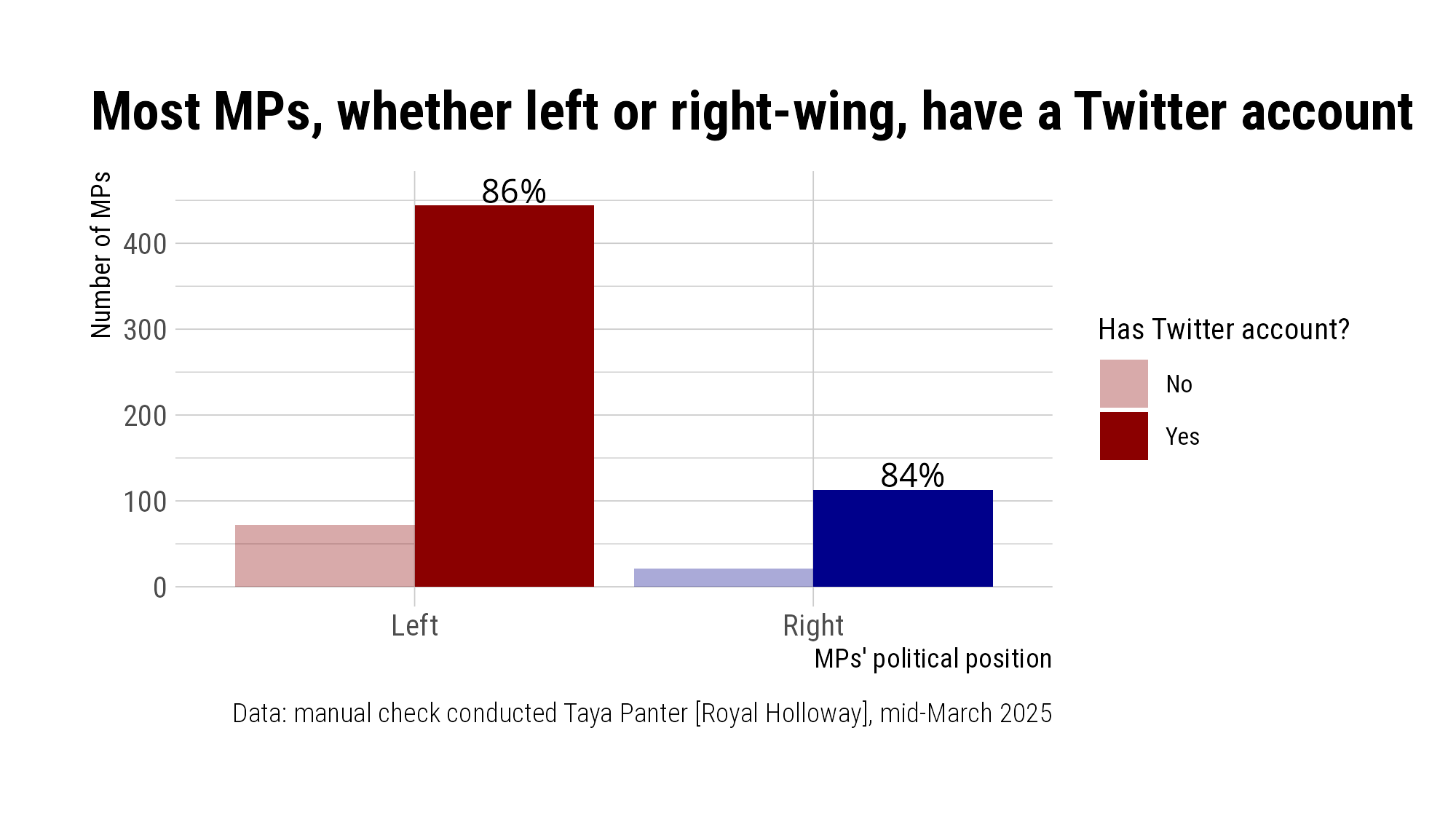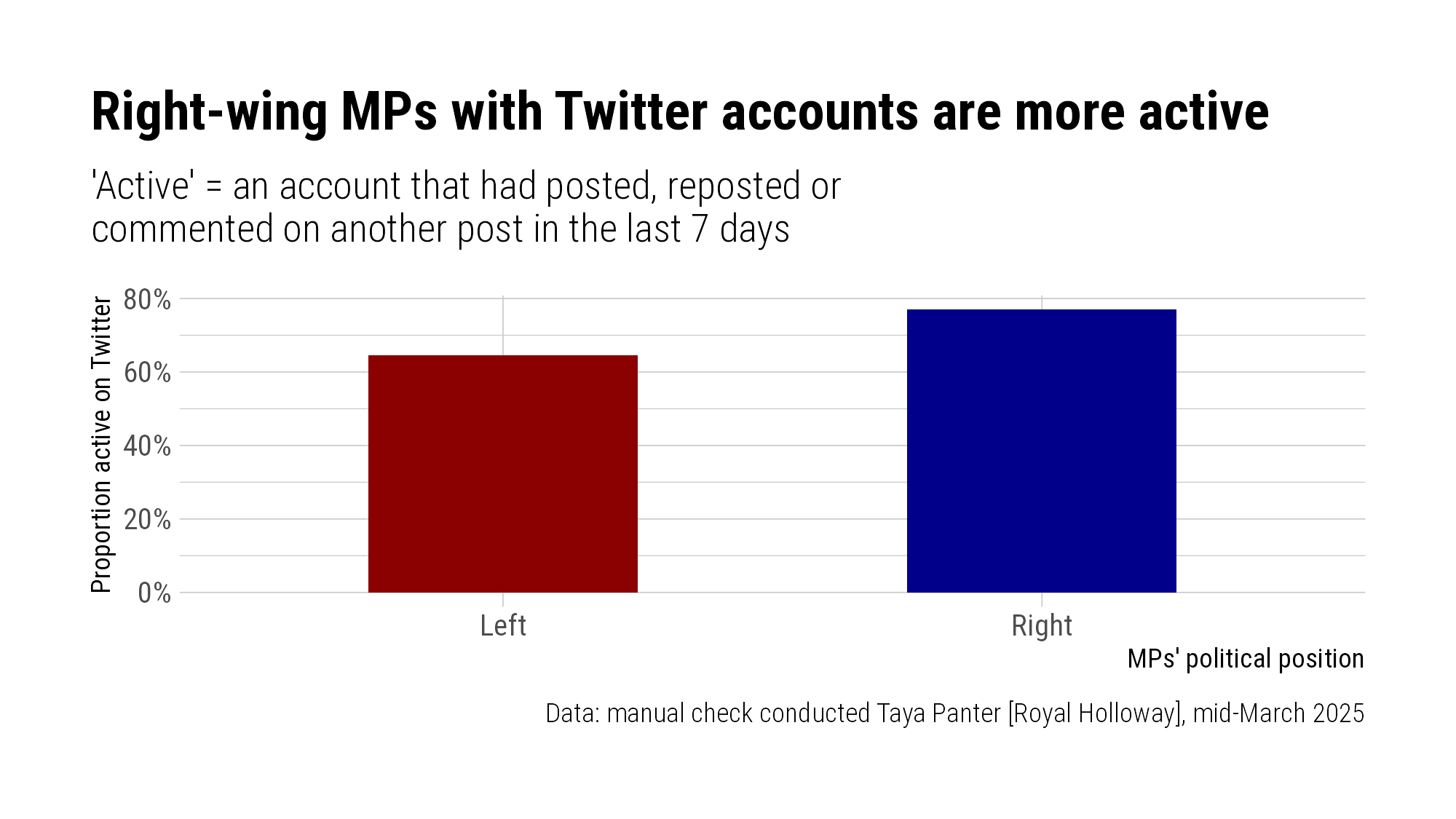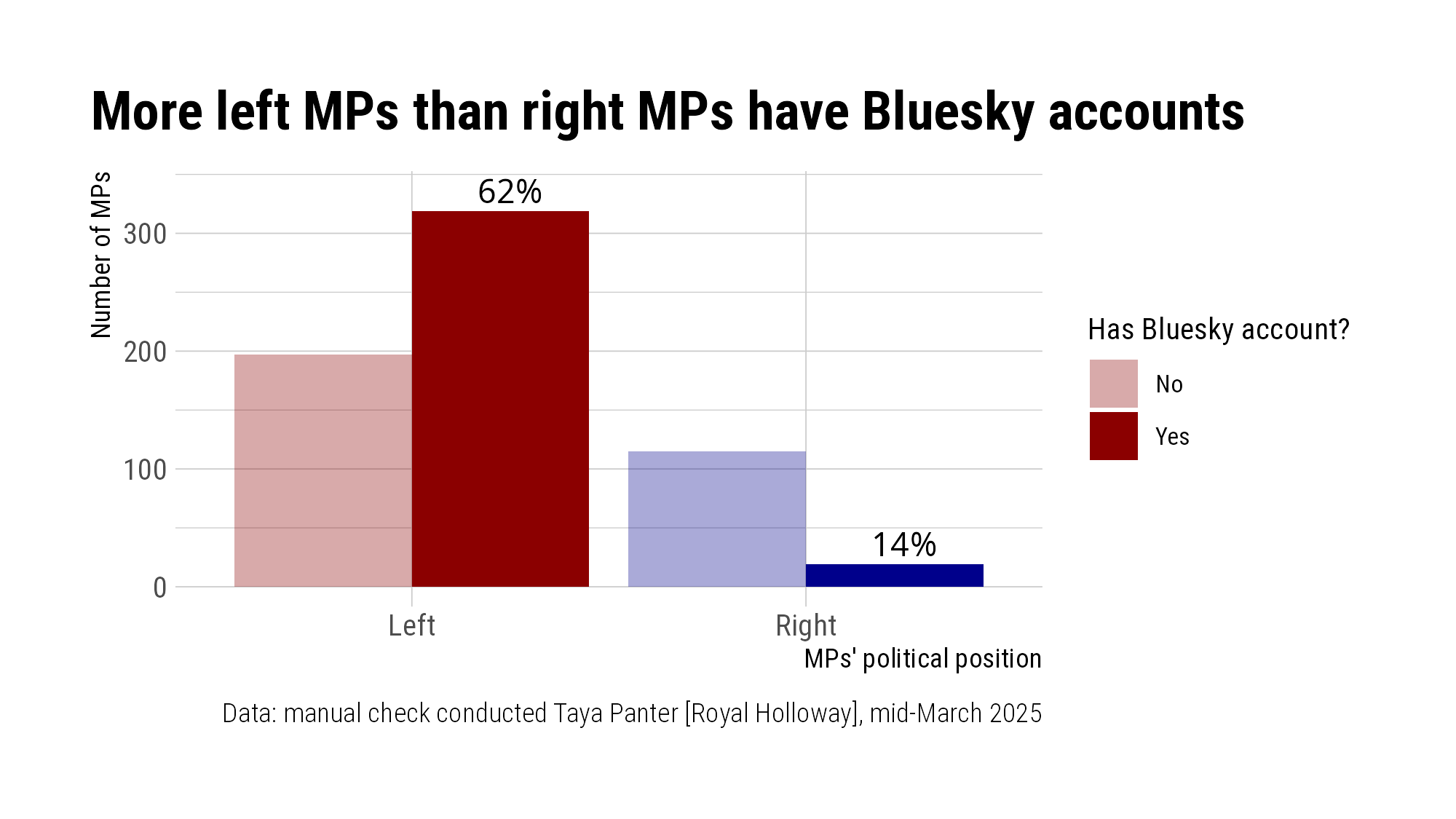Right-wing MPs are more active on X/Twitter and less present on Bluesky
(This is a lightly edited version of an essay written by Taya Panter, a final year undergraduate in PIRP. Taya wrote the essay for Nick Allen’s Parliamentary Studies module.)
Scholars and commentators have long warned of the potential risks posed by social-media echo chambers. Analysis of MPs’ use of X/Twitter and Bluesky suggests that politicians are inadvertently or intentionally contributing to such echo chambers by selectively engaging with different platforms.
Elected politicians have always engaged with new forms of communication. Their job depends on it. Much of their time is spent communicating with voters and constituents, sometimes in receiving mode, often in broadcasting mode.
Social media presents distinct opportunities and challenges for MPs. Different platforms enable them to engage directly with citizens, helping them to act as both representatives and campaigners. But platforms vary in their ability to facilitate meaningful engagement, and some have become synonymous with misinformation, disinformation and occasionally hateful, threatening messaging.
Until relatively recently X/Twitter enjoyed an effective monopoly as the go-to microblogging platform for UK politicians. Most MPs and many peers had active accounts. Donald Trump’s Truth Social, set up as an alternative platform for others of his political disposition, sought to break the monopoly—but it never really caught on among British MPs, for fairly obvious reasons.
BlueSky, an alternative microblogging platform, has more effectively challenges X/Twitter’s dominance. Bluesky’s popularity soared in the wake of Elon Musk’s purchase of Twitter, which he renamed X. Concerns about his monetisation of the platform, his political views and new algorithms pushing right-wing content drove many users towards Bluesky, which quickly established itself as the centrist or progressive alternative to X/Twitter.
X/Twitter, with more than 600 million users, still dwarfs Bluesky, which has fewer than 40 million. Whether Bluesky close the gap remains to be seen. Recent reports suggest that some users have tired of the platform’s evolution towards an echo chamber of the left.
Against this backdrop, it is important to investigate whether MPs from different parties have been disproportionately likely to remain on X/Twitter or to migrate to Bluesky. If those on the ideological right have tended to do the former and those on the left the latter, they may be contributing to the growing echo-chamber on social media.
A quick count of every MP who was present on Bluesky and/or an X/Twitter was undertaken in mid-March 2025. An active account was defined as one that had posted, reposted or commented on another post in the last 7 days.

When it came to having a presence on X/Twitter, there was little in it between MPs on the right or centre-right—those elected as Conservatives, Reform UK, DUP or UUP Members, plus the independent Northern Irish MP, Alex Easton—and those on the left or centre-left—all other MPs. A large majority (84%) of the 134 MPs on the right were present on X/Twitter, as were a large majority (86%) of the 516 MPs on the right.

The results revealed an emerging ideological or partisan divide in MPs’ active use of the platform. Around 65% of MPs from right or centre-right parties had posted, reposted or commented in the previous week, compared with 56% of MPs from left or centre-left parties.

Partisan differences were far more pronounced when it came to Bluesky. No fewer than 62% of left or centre-left MPs had a Bluesky account, and 43% were coded as being active on the platform. In stark contrast, only 14% of right or centre-right MPs had a presence on the platform, and just 2% were active on Bluesky.
Multivariate analysis (not reported) confirmed the significance of these patterns. After controlling for MPs’ gender and frontbench/backbench status, right or centre-right MPs were significantly more likely to be active on X/Twitter. Likewise, after controlling for the same variables and existing presence on social media (having an X/Twitter account), right or centre-right MPs were significantly less likely to be active on Bluesky.
One important caveat to these trends was the behaviour of ministers and other frontbenchers. MPs in frontbench positions were less likely to be active on Bluesky than backbench MPs. This difference is probably pragmatic and political. It likely reflects the established and more extensive reach of X/Twitter, with which ministers need to engage. It also probably reflects a desire in government for ministers not to signal their feelings about Musk by moving to the rival platform.
Taken together, these findings, though crude, provide strong evidence of a partisan and/or ideological divide in MPs’ engagement with new and existing social-media platforms. They also provide some indication that MPs might be contributing to echo chambers in online discourse by engaging with platforms associated with their general ideological position.
Whether or not these divides soften or harden remains to be seen. MPs' use of social media is constantly evolving, just as the available platforms are evolving. Ideological differences may soften as first-time MPs seek to engage with constituents and bolster their re-election prospects by being more active across platforms.
But there may be a cause for alarm if they differences persist. Party fragmentation and polarisation are putting both the UK party system and norms of civility under enormous strain. These strains will be exacerbated if MPs engage online with only their kindred spirits.